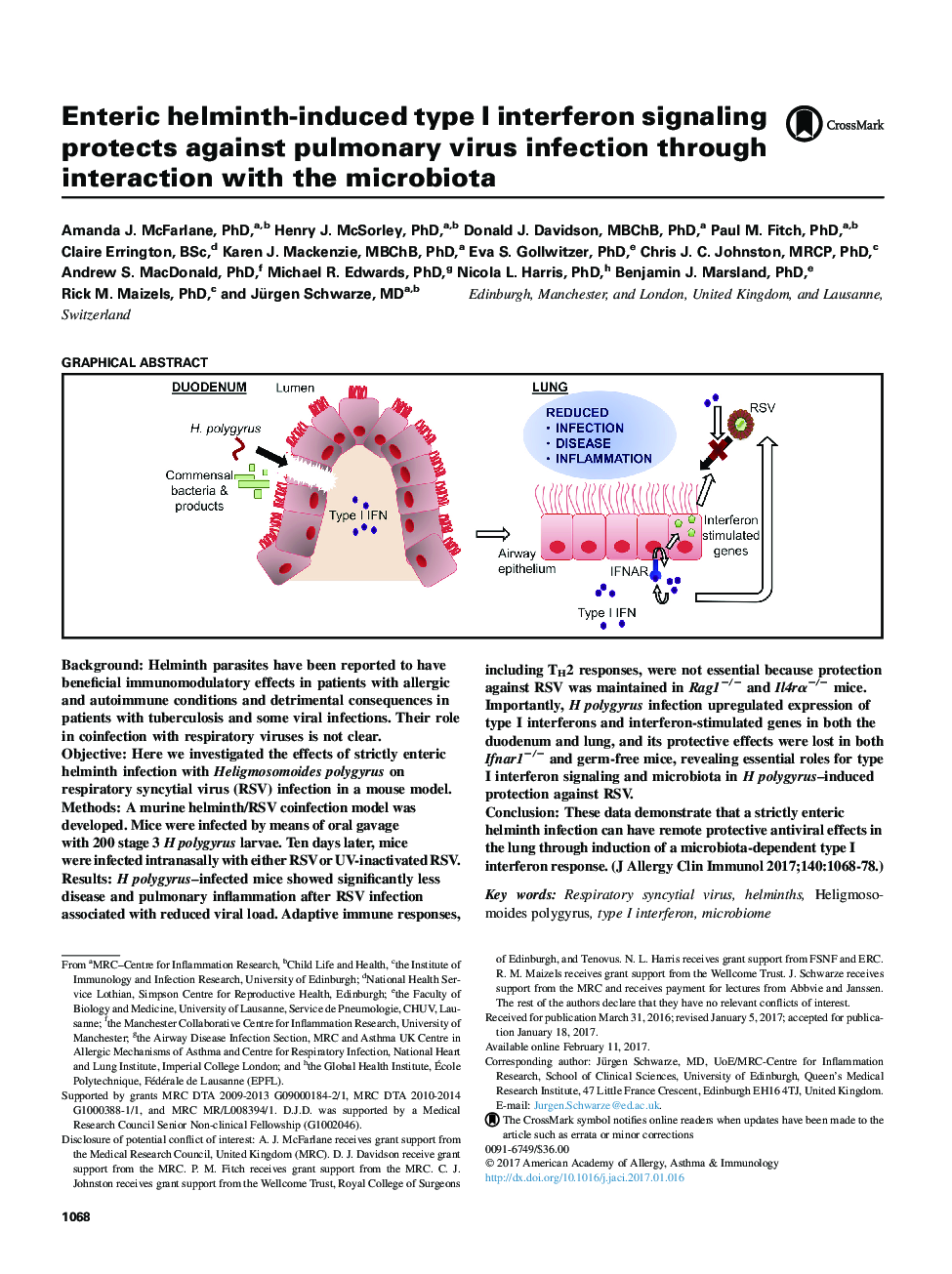| Article ID | Journal | Published Year | Pages | File Type |
|---|---|---|---|---|
| 5646283 | Journal of Allergy and Clinical Immunology | 2017 | 17 Pages |
BackgroundHelminth parasites have been reported to have beneficial immunomodulatory effects in patients with allergic and autoimmune conditions and detrimental consequences in patients with tuberculosis and some viral infections. Their role in coinfection with respiratory viruses is not clear.ObjectiveHere we investigated the effects of strictly enteric helminth infection with Heligmosomoides polygyrus on respiratory syncytial virus (RSV) infection in a mouse model.MethodsA murine helminth/RSV coinfection model was developed. Mice were infected by means of oral gavage with 200 stage 3 H polygyrus larvae. Ten days later, mice were infected intranasally with either RSV or UV-inactivated RSV.ResultsH polygyrus-infected mice showed significantly less disease and pulmonary inflammation after RSV infection associated with reduced viral load. Adaptive immune responses, including TH2 responses, were not essential because protection against RSV was maintained in Rag1â/â and Il4rαâ/â mice. Importantly, H polygyrus infection upregulated expression of type I interferons and interferon-stimulated genes in both the duodenum and lung, and its protective effects were lost in both Ifnar1â/â and germ-free mice, revealing essential roles for type I interferon signaling and microbiota in H polygyrus-induced protection against RSV.ConclusionThese data demonstrate that a strictly enteric helminth infection can have remote protective antiviral effects in the lung through induction of a microbiota-dependent type I interferon response.
Graphical abstractDownload high-res image (323KB)Download full-size image
